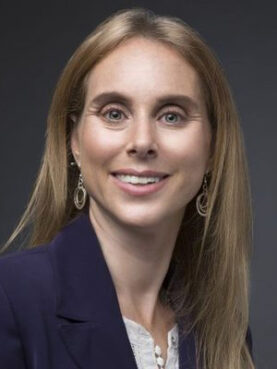(RNS) — A rabbinic human rights organization based in New York City announced Thursday (Sept. 22) it was starting a think tank to provide a counterpoint to the growing prominence of conservative-leaning Jewish public policy platforms.
The new institute for Jewish thought is called “Emor,” from the Hebrew word “speak” (also the name of a weekly Torah portion from the Book of Leviticus). It will be based at T’ruah, the rabbinic human rights organization, and offer teaching forums, videos and occasional publications, in addition to fellowships for college students.
The idea is to articulate a vision of a just society from a progressive perspective.
“The right wing, including Jewish institutions and donors, have invested massively in think tanks and media that are pushing ideas such as the backlash against feminism, anti-racism and trans rights into the mainstream,” said Rabbi Jill Jacobs, T’ruah’s CEO. “This is terrifying for those of us who care about the safety and dignity of all members of our society. We also know that Judaism includes thousands of years of smart people arguing about how to build the most just society.”
The think tank will be run by leaders from T’ruah, including Rabbi Lev Meirowitz Nelson and Rabbi Becky Jaye.
While U.S. Jews are by and large politically liberal, donations to Jewish causes have tended to flow into initiatives to sustain Jewish continuity and survival, which tend to be conservative leaning, said Lila Corwin Berman, a history professor at Temple University who studies American Jewish philanthropy.
RELATED: Blowing shofars, Jewish lawmakers, rabbis hold abortion rights ‘sho-test’
Abby Levine, executive director of the Jewish Social Justice Roundtable, identified three issues where she believes a more robust Jewish progressive response is needed: antisemitism, racism and the Israel-Palestinian conflict.
“We are seeing a backlash to the progress we’ve made on racial justice and social justice,” said Levine, whose roundtable consists of a network of 78 organizations that do social justice work.

Rabbi Jill Jacobs. Photo courtesy of T’ruah
A collection of essays on the issue of freedom is expected to be one of the think tank’s first contributions, Jacobs said.
The past decade has seen a growth of Jewish policy journals such as Mosaic and Sapir that often reflect libertarian economic philosophies, skepticism about social justice conversations, and pro-Israel views. The journals are funded by the Tikvah Fund and the Maimonides Fund, both of which lean center-right on Jewish issues.
“There’s a realization that in the absence of Emor these more conservative voices go unchallenged and help to shape the dominant narrative on human rights, Israel/Palestine, antisemitism, egalitarianism, gender identity,” said Mik Moore, a digital media strategist and an adviser to T’ruah.
Jacobs said Emor’s work is not intended to be purely for academic ends.
“It’s not ideas for the sake of ideas,” Jacobs said, “but ideas for the sake of action.”
RELATED: Poll: Jewish voters are highly motivated and concerned about American democracy





